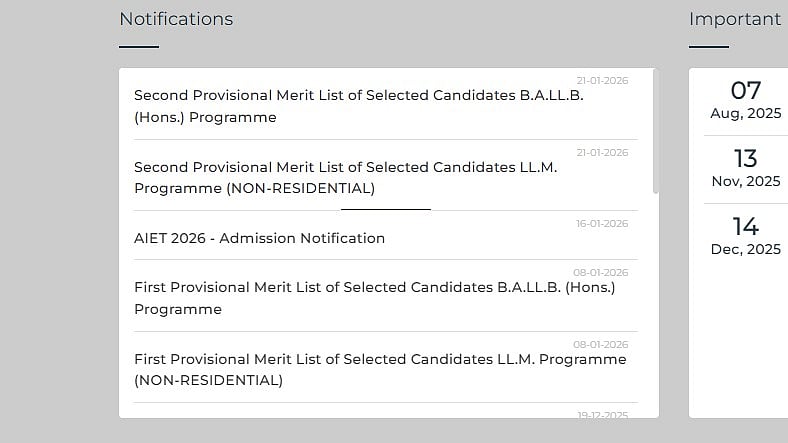In a landmark shift aimed at aligning school education with India’s evolving legal landscape, the Central Board of Secondary Education (CBSE) has approved a comprehensive revamp of its Legal Studies curriculum for Classes 11 and 12. The updated syllabus, which will be introduced from the 2026–27 academic session, will feature several recent and historic legal reforms that have reshaped Indian jurisprudence.
According to a report by The Indian Express, the revised curriculum will include key legal developments such as the abolition of instant triple talaq, the decriminalization of homosexuality through the reading down of Section 377, and the repeal of the colonial-era sedition law. These additions mark a significant step in making legal education more relevant and contemporary for school students, especially law aspirants.
In addition to these reforms, students will also study three newly enacted criminal laws that are—Bhartiya Nyaya Sanhita (BNS), Bhartiya Nagarik Suraksha Sanhita (BNSS), and Bhartiya Sakshya Adhiniyam (BSA)—which replace the Indian Penal Code (IPC), Criminal Procedure Code (CrPC), and Indian Evidence Act, respectively.
The Indian Express report confirms that the CBSE Curriculum Committee approved the new syllabus, which was later ratified by the CBSE Governing Body in June 2025. The updated framework is described as offering a "modern, engaging pedagogy" aligned with the principles of the National Education Policy (NEP) 2020.
Quoting official sources, the report emphasised that the revamp is designed to foster analytical reasoning, promote understanding of landmark judgments, and expose students to emerging legal doctrines in a dynamic constitutional framework.
Why This Matters for Law Aspirants
The report further added that while legal studies as a subject was introduced over a decade ago—Class 11 in 2013 and Class 12 in 2014—the textbooks have not kept pace with India’s fast-changing legal environment. The last major update came in 2022–23, when topics like the POSH Act (2013), Right to Information Act, Consumer Protection Act, and Intellectual Property Rights were added.
The current overhaul addresses long-standing concerns that the curriculum lagged behind key legal transformations, many of which directly impact constitutional rights and civil liberties.
Further expanding the subject’s reach, the Directorate of Education approved Legal Studies in 29 more schools in 2024, reflecting growing interest in legal literacy among students and educators alike.










